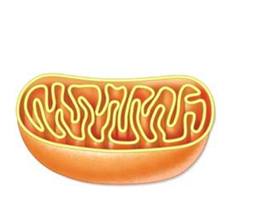Into which group would you place a photosynthetic organism that lacks a nucleus and has a thin peptidoglycan wall surrounded by an outer membrane?
a. Fungi
b. Plantae
c. Firmicutes (gram-positive bacteria)
d. Proteobacteria (gram-negative bacteria)
e. Animalia
Ans: d. Proteobacteria (gram-negative bacteria)
You might also like to view...
Answer the following statements true (T) or false (F)
1. This diagram shows the chloroplast, in which aerobic respiration takes place.

2. Because clindamycin and similar antibiotics bind to bacterial ribosomes, they work by inhibiting translation in the bacterial cells.
3. There are only two main types of RNA, tRNA and rRNA, needed to make proteins.
4. Transcription is the process by which cells use the information of RNA molecules to make proteins.
5. Transfer RNA delivers amino acids to the ribosome during protein synthesis.
carbon cycle: fossil fuels
What will be an ideal response?
During photosynthesis, ATP molecules are generated by:
A. light striking the chlorophyll molecules B. the Calvin cycle C. the splitting of water D. chemiosmosis
Through which process are bacteria able to exchange genetic material?
A) Sexual reproduction B) Photosynthesis C) Conjugation D) Anaerobic respiration E) Endospore formation